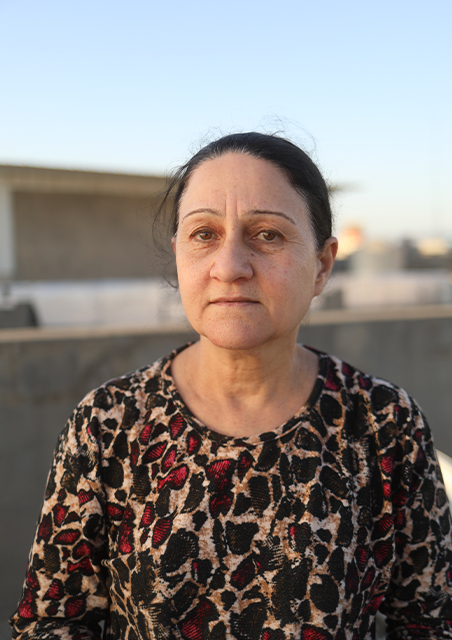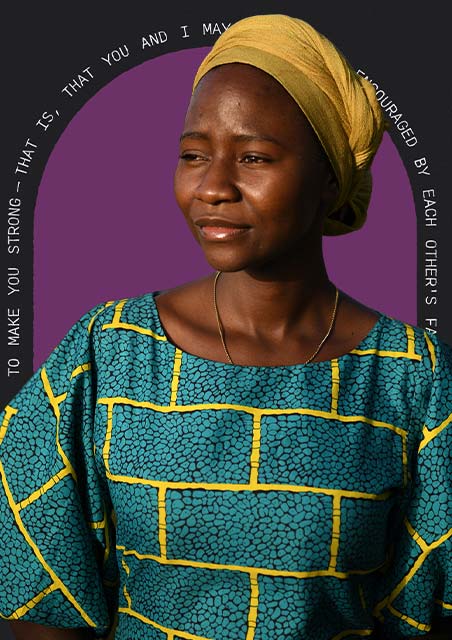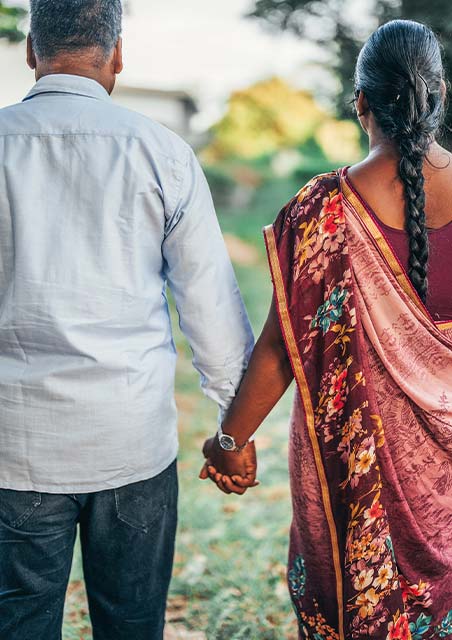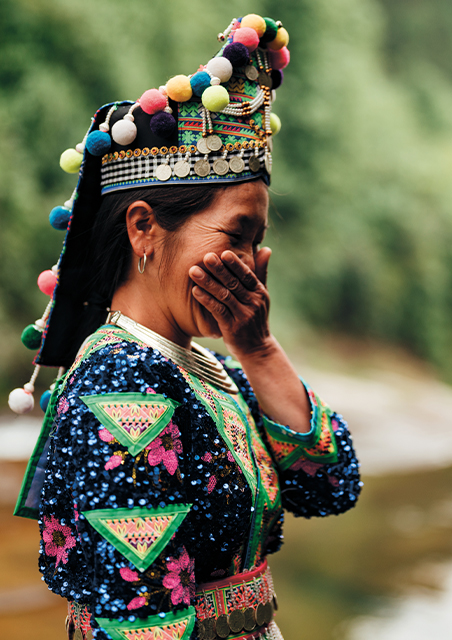See. Change.: Interview with Jacqueline Isaac, architect of the Declaration of Humanity
Following on from the announcement that Open Doors has signed the Declaration of Humanity, you can now read an exclusive interview with one of the people who created it. The Declaration was launched by the UK Government’s Preventing Sexual Violence in Conflict Initiative (PSVI) team one year after 16,000 Open Doors supporters signed the Handmade Petition to declare that persecuted Christian women are seen and loved.
Jacqueline Isaac is the Vice President of NGO Roads of Success and an international lawyer who was one of the architects of the new Declaration of Humanity. In this interview with Open Doors, she explains what the Declaration is and how it will impact the lives of women and girls who have experienced, or are vulnerable to, faith-based sexual violence in conflict.
1. Let’s start with the basics: what is the Declaration of Humanity?

Jacqueline Isaac
The Declaration of Humanity by Leaders of Faith and Leaders of Belief is the first-of-its-kind declaration to prevent sexual violence in conflict and end the stigma that faces survivors and children. The Declaration unites leaders of multiple faiths, challenging damaging societal norms, emphasising the double vulnerability that religious minorities face, calling for their protection and encouraging support for survivors of sexual violence internationally.
In late 2018, I was serving on the UK-based PSVI [Preventing Sexual Violence in Conflict] Faith and Belief Leaders Working Group for the FCO. I received a letter from Lord Ahmad, the Prime Minister’s Special Representative on PSVI, to discuss a ‘call to action’ against sexual violence. The visionary, Lord Ahmad, presented the idea of a Declaration of Humanity to be driven by leaders of faith or belief where I was invited to begin writing the document. Honoured but aware of the weighty responsibility, I proposed the language of the first draft. After extensive dialogue with the PSVIC Faith and Belief Leaders Working Group, we collectively revised and finalised the document that is now launched as the Declaration of Humanity. It was crucial that we agreed on the provisions that mattered most for survivors and made the important changes needed. Also, the discussions within our drafting committee displayed an example of how leaders of faith and belief can unify to make transformative change for such a purpose.
The Declaration condemns conflict-related sexual violence, redefines the understanding of rape and sexual violence, and affirms the innocence of survivors and the need to fully honour and accept them. It also puts action to words and commits signatories to doing everything in our power to both prevent conflict-related sexual violence and also support survivors. I’m pleased to say this declaration has been signed by many faith leaders, worldwide.
2. Why is the Declaration needed?
Undoubtedly, a key weapon in ISIS’s genocide against Christian, Yazidi, and other religious minority populations across Syria and Iraq was the targeting of women and girls as a means of destroying their families and their communities.
These innocent, brave, strong Christian and Yazidi women and girls, as well as men and boys, were targeted solely based on their religion. That is why a declaration that acknowledges that intersection of religion and sexual violence, and the power of religion to support these women and their families, is the greatest tool to show perpetrators like so-called Islamic State (IS): you did not succeed in your mission to destroy this religious group.
Coming from a religious minority background in the Middle East myself, I understand how important it is for the world to support victims and survivors of our minority communities – so that they don’t just remain in their homeland but thrive there. Acknowledging the innocence of survivors and victims and emphasising the necessity of reintegrating them back into their community—including their religious community—is the strongest weapon against the campaign of mass wartime rape and captivity. And that process of support and acceptance of these survivors must begin with religious leaders.
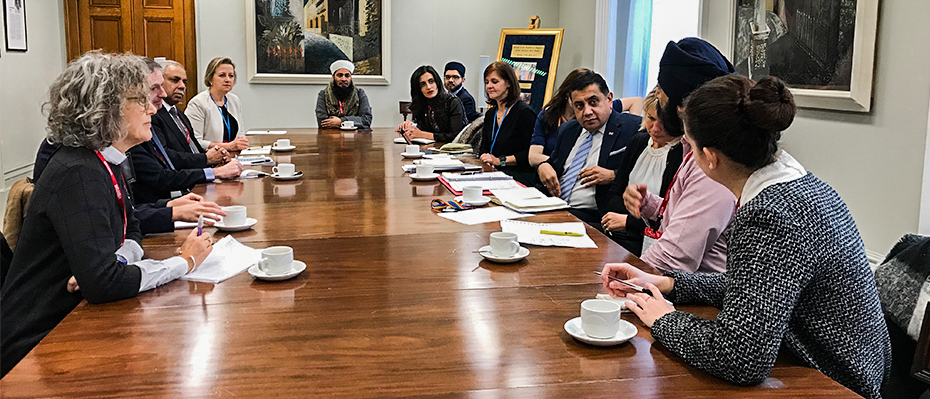
3. How do you think the Declaration will impact the lives of real women?
One young Yazidi woman from northern Iraq whom I had the privilege of working with, Ekhlas Bajoo, told me that she attempted to take her own life three times. She had suffered terribly while in IS captivity. However, her faith was a light in the darkness—it was her hope.
And the best advocate for survivors like Ekhlas was the local religious authorities. Yazidi spiritual leader Khurto Hajji Ismail, known as Baba Sheikh, issued an edict telling families and communities to accept and reintegrate rape survivors, especially those who had escaped from captivity where they were forced to convert to Islam—a previously unpardonable sin in the Yazidi religion, sometimes punished by ‘honour killing’. Women and girls were no longer shunned but were rather being welcomed back.
"A survivor needs a community that supports her, listens to her, and fights for her" Jacqueline Isaac
The first group of women who escaped captivity in August 2014 sat down with Baba Sheikh, who personally welcomed them back into the faith, assuring their families that they were still Yazidi. That means that women like Ekhlas can return to a community that supports her, listens to her, and fights for her.
This Declaration acknowledges the role faith played in a survivor’s resilience, their bravery, and their escape. The Declaration implores religious leaders within the survivors’ communities to stand with them like Baba Sheikh did. Implementing this Declaration will usher in a new understanding of sexual and gender-based violence that will see an increase in support to survivors like Ekhlas.
4. What are the respective roles of local faith leaders, governments and intergovernmental organisations?
The intersection of roles and the unity between leaders of faith, government and civil society to end sexual violence in conflict is crucial to end stigma. Local, national, and international levels each have a crucial, mutually reinforcing mission in relation to the other two that fosters a new international dialogue that redefines the understanding of sexual and gender-based violence in conflict while also empowering actors on each level to take action.
While local leaders are the mouthpiece of the declaration on the ground, national and international actors are responsible for supporting these leaders in fostering the norms and values embodied in the declaration.
5. What is your sense about the UK Government’s commitment on this issue?
Since I began advocating on behalf of Yazidi and Christian survivors of sexual violence in conflict by IS and other perpetrators, I have worked with the UK Government every step of the way and seen their commitment to the issue of ending sexual and gender based violence in conflict. The UK’s continuous commitment to dialogue between freedom of religion or belief and PSVI has shown an unmatchable leadership in this space.
I look forward to continuing this journey with the UK, as the Declaration launch is but the first step. The next steps forward for the UK are to ensure that implementation happens at all stages, calling on more leaders to sign, holding interreligious dialogue with survivors and ensuring that practical steps are taking place on local levels.
6. How can Open Doors supporters, who care passionately about the persecuted church, support the Declaration?
Firstly, thank you. Brave, beautiful, resilient women have spoken out to save each other, their community and their people, sharing their story and asking “Where are you world?” And together we have begun to answer their call. So thank you for being guardians and protectors of these women and their stories and the communities they are fighting to preserve.
"We must put the words of the Declaration into action" Jacqueline Isaac
The best first step for those seeking to support survivors of sexual and gender-based violence in conflict is to sign the Declaration. By signing the Declaration, we are part of a movement that is redefining how this violence is viewed and how survivors are treated. We are signalling to survivors, to their communities, to perpetrator groups, and to the world that there is an unignorable transformation and shift in deeply rooted social attitudes towards rape and rape survivors that will no longer tolerate silencing and rejecting survivors. You can email psvi@fcdo.gov.uk to sign on. Please do!
7. What are the next steps for advocating for change?
We must put the words of the Declaration into action. We must work with faith leaders in areas where sexual and gender based violence is occurring during conflict and ensure that these leaders have the tools necessary to educate and lead their communities in rejecting past societal attitudes towards survivors and rather understanding the heroism of survivors and their necessary place in the rebuilding of the community.
Thank you so much for advocating for your sisters in Christ. You are amplifying their voices, and making a real difference. Please keep praying for persecuted Christian women.

